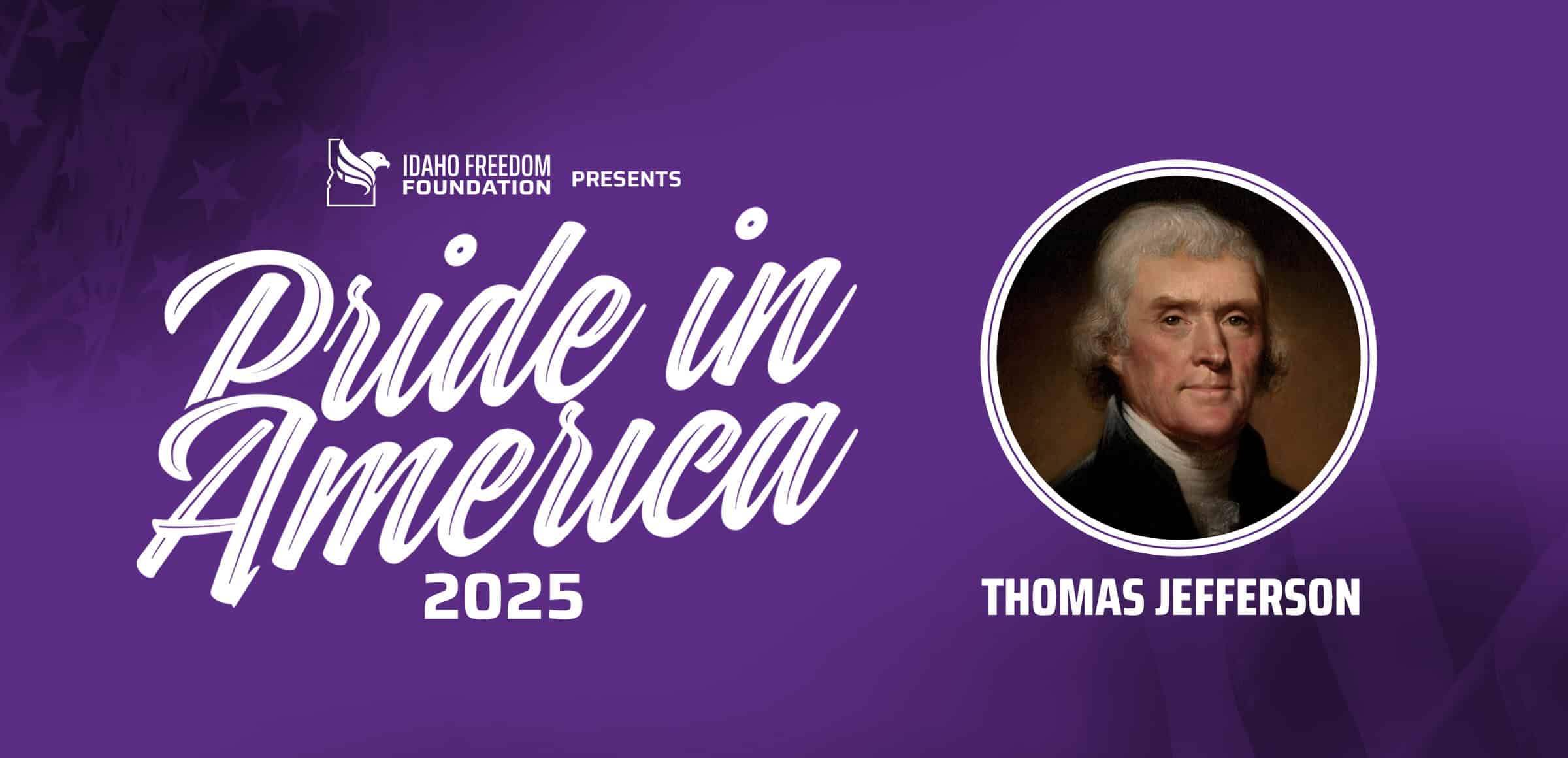


In celebration of our national heritage, we continue our Pride in America series by honoring Thomas Jefferson, a Founding Father whose bold vision for self-governance laid the very foundation of the American experiment.
Among the most well-known of America’s Founding Fathers, Thomas Jefferson is the author of the Declaration of Independence and the third President of the United States. His strong belief in and defense of inherent rights bestowed by God laid the foundation for the colonies to declare their independence from British rule and to establish the Constitutional Republic we continue to enjoy today.
In 1769, at the age of 26, Jefferson was elected to Virginia’s House of Burgesses (the legislature in colonial Virginia). In 1774, Jefferson drafted a “Summary View of the Rights of British America” for the Virginia delegation to the First Continental Congress. In 1776, as a member of the Second Continental Congress, Jefferson was selected to be the primary author of the Declaration of Independence, which he completed in just three days. It was then amended by the Continental Congress and ratified on July 4, 1776. Jefferson’s Declaration remains one of the most important documents in history, articulating the inherent rights of the people. Government is established to protect those rights and is a servant of the people, not their master.
The 250th anniversary of that historical event will be celebrated next year in 2026.
After leaving the Continental Congress, Jefferson served in Virginia’s legislature and then as governor from 1779 to 1781. Following that, he authored the only book he ever wrote, “Notes on the State of Virginia.”
In 1784, he re-entered the life of public service as a trade commissioner in France, then later as minister to France. In 1790, he began his tenure as the first Secretary of State under the new Constitution. In 1796, Jefferson was the first presidential candidate of the new and promising Democratic-Republican Party, challenging John Adams. Jefferson lost by three electoral votes and became vice president. Four years later, he defeated Adams in another close race, becoming the country’s third president in 1801.
Jefferson’s time as president is remembered for the Louisiana Purchase of 1803, which massively expanded the land of the United States, as well as the Embargo Act of 1807 and the Lewis and Clark Expedition. He served two terms as president, during which he fervently defended his positions that a weak federal government is essential to liberty and that power should remain with the people. He was a staunch critic of the Alien Act and Sedition Acts of 1798, and ultimately pardoned every person convicted under the Sedition Act. Jefferson believed those laws to be violations of the First Amendment.
Interestingly, Jefferson died on July 4, 1826 — exactly 50 years after the signing of the Declaration of Independence. Jefferson’s foundational role in articulating our inherent rights and establishing a government beholden to the people helped shape the principles of liberty and limited government that continue to define our nation.

